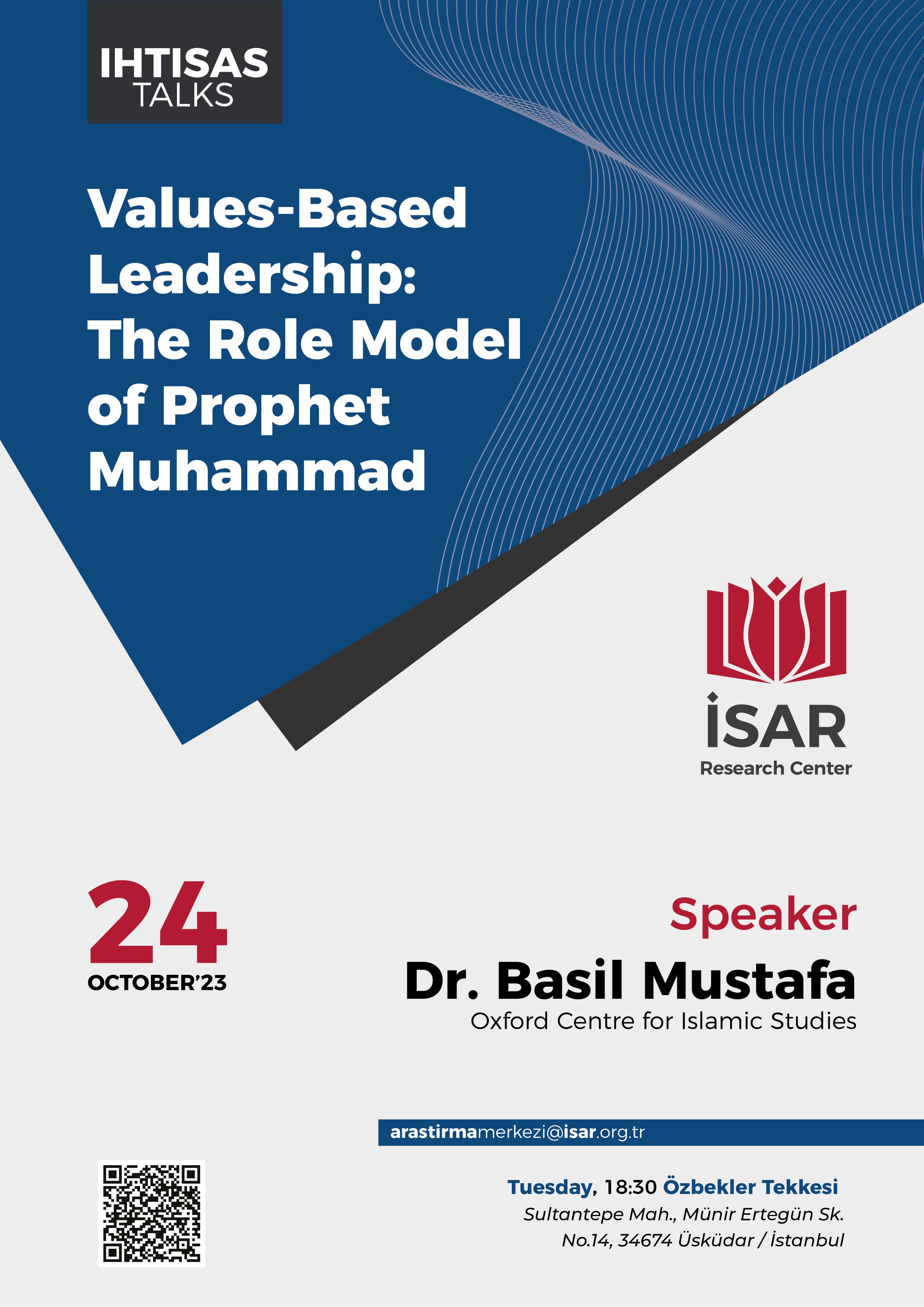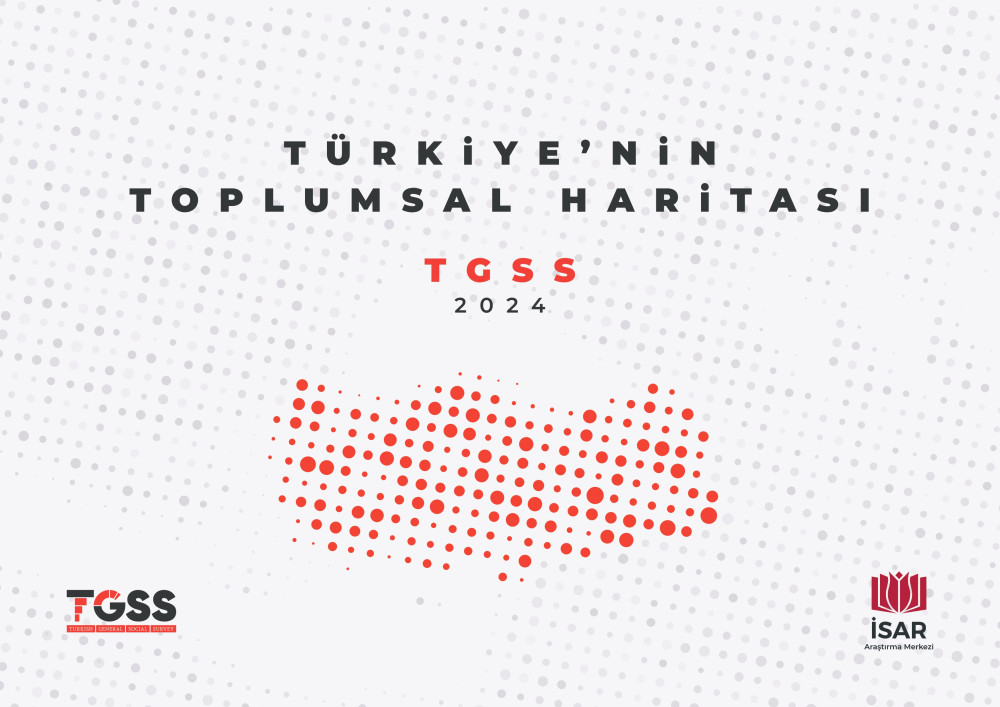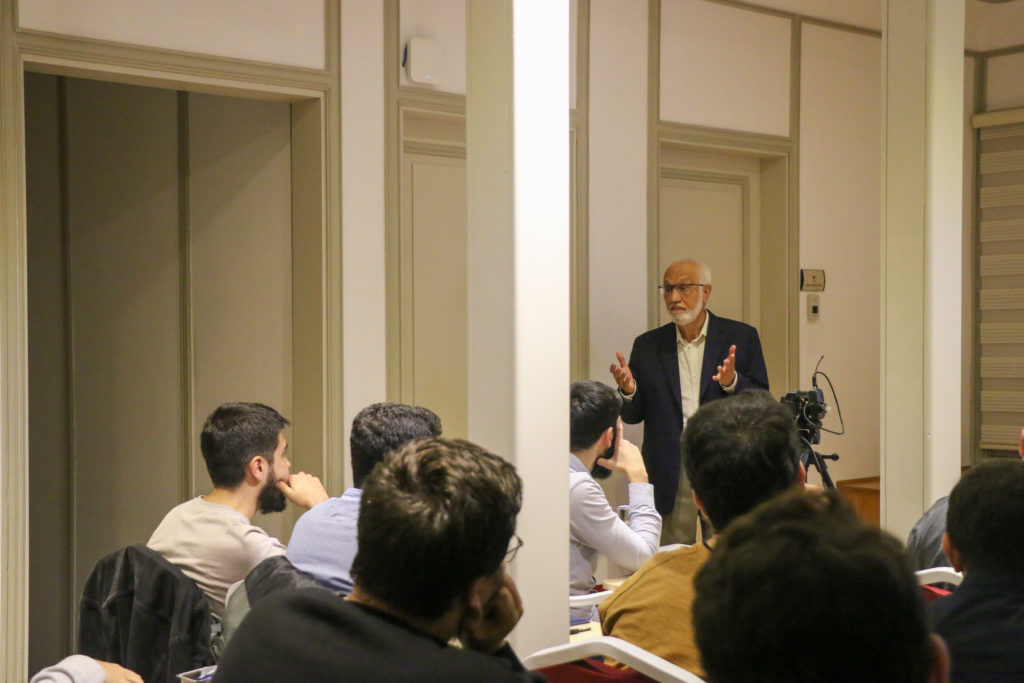
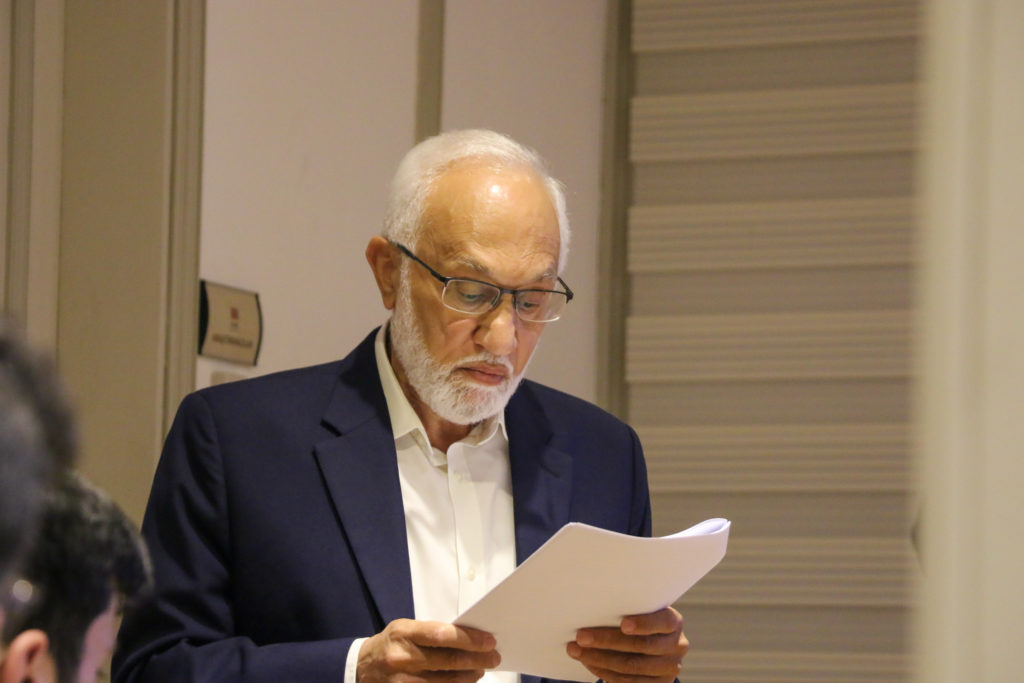
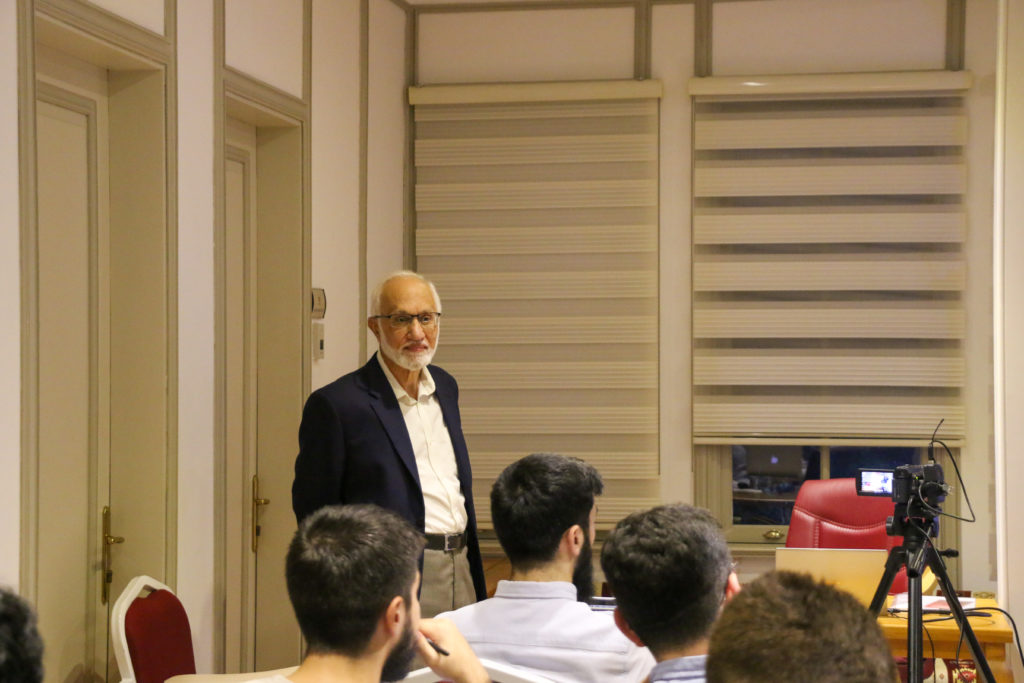
This article is translated from its Turkish original. Author of the Turkish original is Muhammed Çavdar who is a student at Marmara University Faculty of Theology.
As part of the İhtisas Talks series organized by ISAR Research Center, Dr. Basil Mustafa's speech titled "Values-Based Leadership: The Role Model of the Prophet Muhammad" was held. In the speech, examples from the Prophet's life were given in terms of value-based leadership and on the basis of these examples, it was emphasized that the Prophet should be taken as a role model in this regard.
At the beginning of his speech, Dr. Mustafa mentioned the necessity of background knowledge in the evaluation of hadiths and narrations. He stated that in order to get the right message from the narrations and for the narrations to address today, the position of the hadith in sīrah should be well understood.
In his first point, Dr. Mustafa emphasized that conveying the right moral reasoning at the right time and place is one of the important characteristics of leadership. As an example, he cited the hadith in which the Prophet praised Hılfu'l-Fudûl. With this statement, the Prophet showed that the community of non-believers was also united around values. Similarly, the Prophet's speech to the captives taken after the Battle of Badr, in which he said that if Mutim b. Adiyy had asked for the release of the captives, he would have released them without blinking an eye, is important in terms of showing the loyalty of a commander who has won a war to a person, even if he is his enemy, in his conquest speech, and that he does not forget the favor he did before. The leader should be consistent in his values and should not hesitate to emphasize them with appropriate timing when necessary.
Secondly, he stated that the critical reasoning approach, which is also common in today's leadership trainings, had an important place in the life of the Prophet. In the hadith of Muaz b. Jabal being sent to Yemen as a governor, Dr. Mustafa mentioned that the Prophet had Muaz find out what he should do with the question and answer method instead of telling him what to do in a directive and didactic way as one of the characteristics that should be taken as an example in today's leadership. In the leader's communication with his teammates, instead of giving directives, the leader's enabling them to find the right work and behavior on their own not only enables his teammates to learn without using a superior language, but also provides them with morale and motivation. In transformational leadership theory, one of today's leadership theories, this method is referred to as intellectual stimulation.
Referring to the positive impact of inspirational motivation on teammates, Dr. Mustafa said that this is a Prophetic practice, but often these narrations are read as merely foretelling the future. In fact, he emphasized that the saying Prophet told Adiyy b. Hātim, "Allah will complete this cause. A woman will set out from Hirah and circumambulate the Baytullah. Then the palaces of Kisrâ will be conquered." was not just a piece of unseen news for him. One of the factors that motivated the Companions to perseverance and effort was to give hope. Therefore, it is of great importance for the leader to explain to his teammates the importance and possible results of the work they are working on, that is, to provide them with inspirational motivation to increase the team's effort.
Another characteristic of the leader that will increase the success of the team is to praise and support the success of the team member who works, strives and succeeds. Doing this in front of the team (giving public recognition) will be a source of motivation for the other members and everyone will be eager to receive this praise. The most obvious example of this in sīrah is the Prophet's praise of Salman al-Fārisī among all the Ansar and Muhajirin for his efforts in digging the trench for the war despite his age, saying, "Salman is from me, he is from my Ahl al-Bayt." This not only changed their view of Salman, but also increased their efforts to be included in the Prophet's compliment and its meaning.
In addition to connecting with individual members, the team leader should also strive to ensure that members communicate with each other and increase their cooperation, helping each other and solidarity. Dr. Mustafa pointed out that this can be seen in the organization of the Companions in the liberation of Salman al-Farisi in sīrah. The strength of teammates' relationships with each other is important for a more productive and trusting work environment.
Before concluding his speech, Dr. Mustafa emphasized that a leader, like any other human being, should focus on the spiritual aspect of his/her leadership in order to improve his/her own abilities as well as his/her relations with his/her teammates and the environment. Stating that one of the most effective ways of the learning process is learning from a model, Dr. Mustafa said that the best example of leadership is the Prophet Muhammad. For this reason, he emphasized that modern management science should be blended with the leadership model envisaged by Islam and brought to life on the Prophet. However, he stated that the predominance of Western literature in this field leads to problems such as not being able to explain, publicize and present the Prophet's example as a role model in the field of leadership and management.

